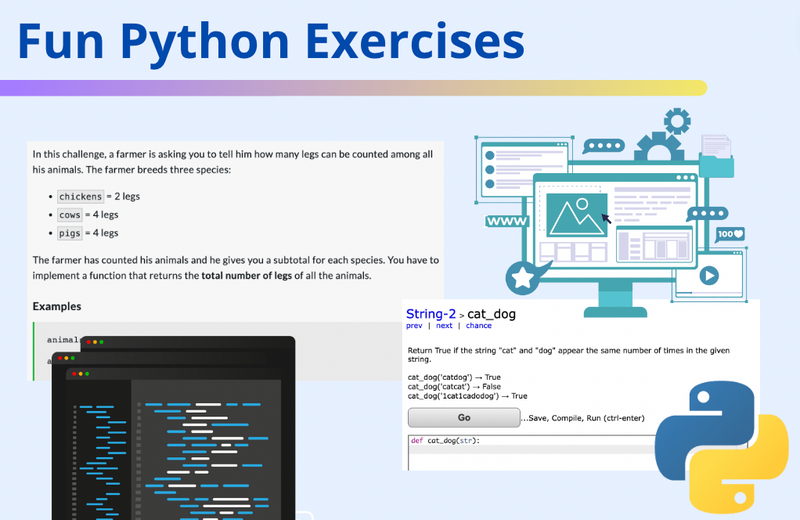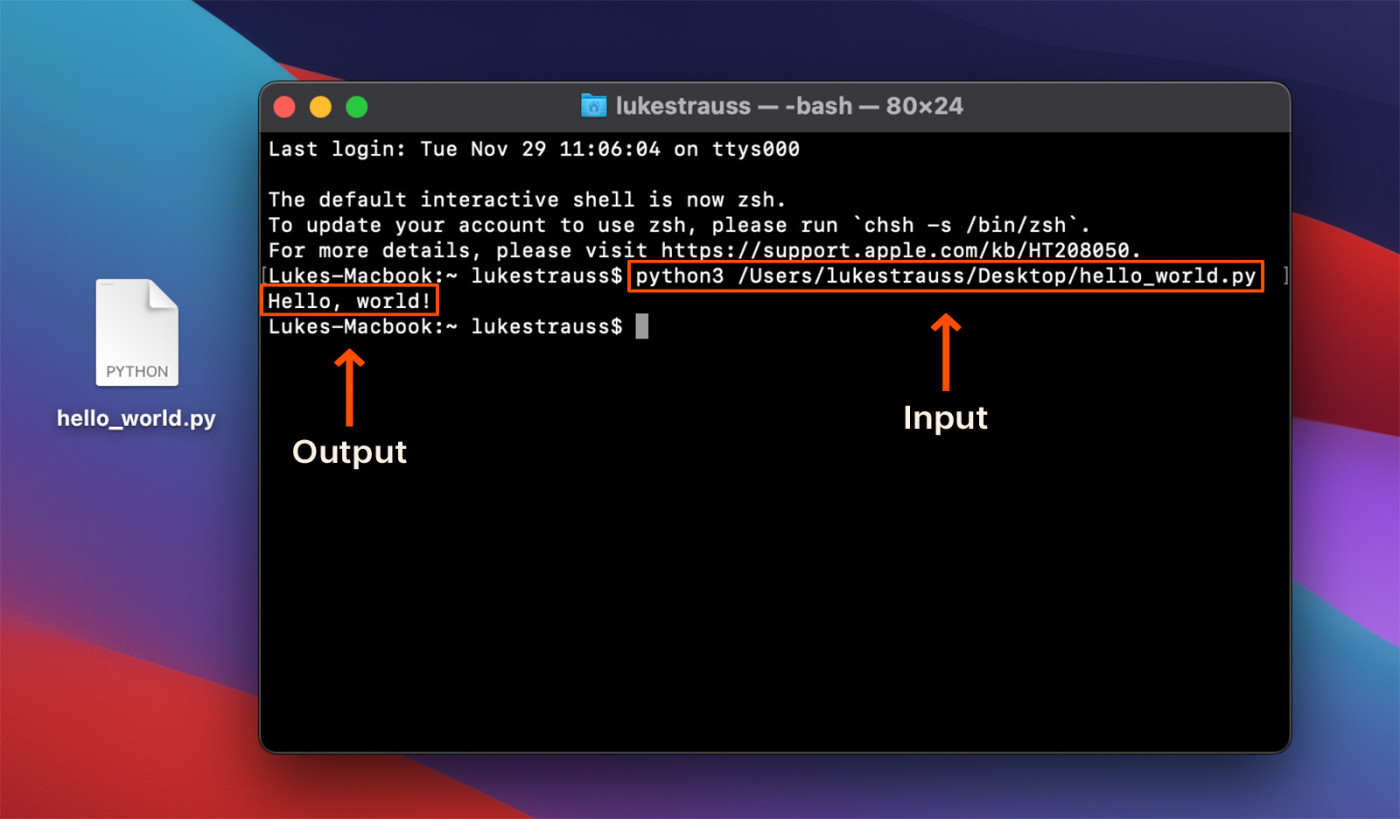Where can I do Python exercises?
Where can I do Python exercises?

I'm glad you asked!

There are many online platforms where you can practice your Python skills and work on exercises to improve your programming abilities. Here are some popular options:
LeetCode: LeetCode is a well-known platform that offers a vast collection of algorithmic challenges, including those specifically designed for Python. You'll find problems ranging from basic syntax to complex algorithms, with solutions available once you've attempted the problem. HackerRank: HackerRank is another popular platform that features Python exercises, along with other programming languages like Java, C++, and more. They offer a wide range of challenges, including coding contests, interview practice, and project-based exercises. Project Euler: Project Euler is a series of mathematical and computational programming problems designed to help you improve your problem-solving skills using Python (and other languages). The problems are diverse and cover various topics like number theory, algebra, geometry, and more. CodeWars: CodeWars is a unique platform that offers coding challenges in the form of martial arts-themed "kata" (exercises). You'll find exercises categorized by level, from kyu ( beginner) to dan (advanced), with rewards for completing each level. Real Python: Real Python is an online community and learning platform focused on teaching Python programming. They offer a range of interactive coding lessons, quizzes, and projects to help you practice your skills. Python.org: The official Python website has an "Exercises" section that provides a collection of Python-related exercises for various skill levels. These exercises are designed to help you learn specific aspects of the language or improve your problem-solving abilities. Edabit: Edabit is an online learning platform that offers interactive coding lessons, quizzes, and projects in Python (and other languages). They focus on practical skills development, with a strong emphasis on real-world scenarios. CodinGame: CodinGame is an online platform where you can learn programming by creating games. You'll find exercises specifically designed for Python, covering topics like game development, data structures, and algorithms.These platforms offer a great way to practice your Python skills, improve your coding abilities, and work on building a portfolio of projects to showcase your achievements. So, go ahead and choose one (or several) that suits your learning style!
Remember, the key to improving your programming skills is consistent practice. Set aside dedicated time to work on exercises and challenges, and you'll see progress in no time!
Writing python scripts to automate tasks with source code

Writing Python Scripts to Automate Tasks: A Comprehensive Guide
Python is a versatile programming language that can be used for various tasks, from data analysis and machine learning to web development and automation. In this guide, we will explore how to write Python scripts to automate tasks, including the source code.
What Can You Automate with Python?
Before we dive into the specifics of writing Python scripts, let's take a look at some examples of what you can automate with Python:
File Management: Renaming files, moving files to different folders, and deleting unnecessary files. Email Automation: Sending emails automatically using Python libraries such as smtplib or yagmail. Web Scraping: Extracting data from websites using libraries such as BeautifulSoup or Scrapy. System Administration: Automating system administration tasks, such as restarting services or running backup scripts. Data Analysis: Cleaning and processing large datasets for further analysis.Writing Your First Python Script
Let's start with a simple script that renames files in a directory.
Script 1: Renaming Files
import os
Set the directory path
directory = '/path/to/your/directory'
Loop through each file in the directory
for filename in os.listdir(directory):
Get the file extension
file_extension = os.path.splitext(filename)[1]
Rename the file by adding a prefix
new_filename = 'new_' + filename
Move the file to a new location
os.rename(os.path.join(directory, filename), os.path.join(directory, new_filename))
print('Files renamed successfully!')
This script uses the os module to interact with the operating system and rename files in the specified directory.
Script 2: Sending an Email
import smtplib
Set your email credentials
email_username = '[email protected]'
email_password = 'your_password'
Set the recipient's email address
recipient_email = '[email protected]'
Create a secure connection to your email server
server = smtplib.SMTP_SSL('smtp.example.com', 465)
Login with your credentials
server.login(email_username, email_password)
Compose and send an email
msg = 'Subject: Test EmailnnHello World!'
server.sendmail(email_username, recipient_email, msg)
This script uses the smtplib library to connect to your email server, login with your credentials, and send a test email.
Script 3: Web Scraping
import requests
from bs4 import BeautifulSoup
Send an HTTP request to the website
url = 'https://www.example.com'
response = requests.get(url)
Parse the HTML content using BeautifulSoup
soup = BeautifulSoup(response.content, 'html.parser')
Extract the relevant data from the webpage
data = soup.find_all('div', {'class': 'relevant-data'})
Print the extracted data
print(data)
This script uses the requests library to send an HTTP request to a website and the BeautifulSoup library to parse the HTML content and extract relevant data.
Tips and Tricks
When writing Python scripts for automation, keep in mind the following tips:
Error Handling: Always include error handling mechanisms to catch any exceptions that may occur during script execution. Logging: Use logging libraries such aslogging or logger to track script execution and detect any errors. Comments: Add comments throughout your code to explain what each section does, making it easier for others (and yourself) to understand the code.
Conclusion
In this guide, we explored how to write Python scripts to automate various tasks, including file management, email automation, web scraping, system administration, and data analysis. By following these tips and tricks, you can create more robust and efficient scripts that simplify your workflow and save time. Happy scripting!





























